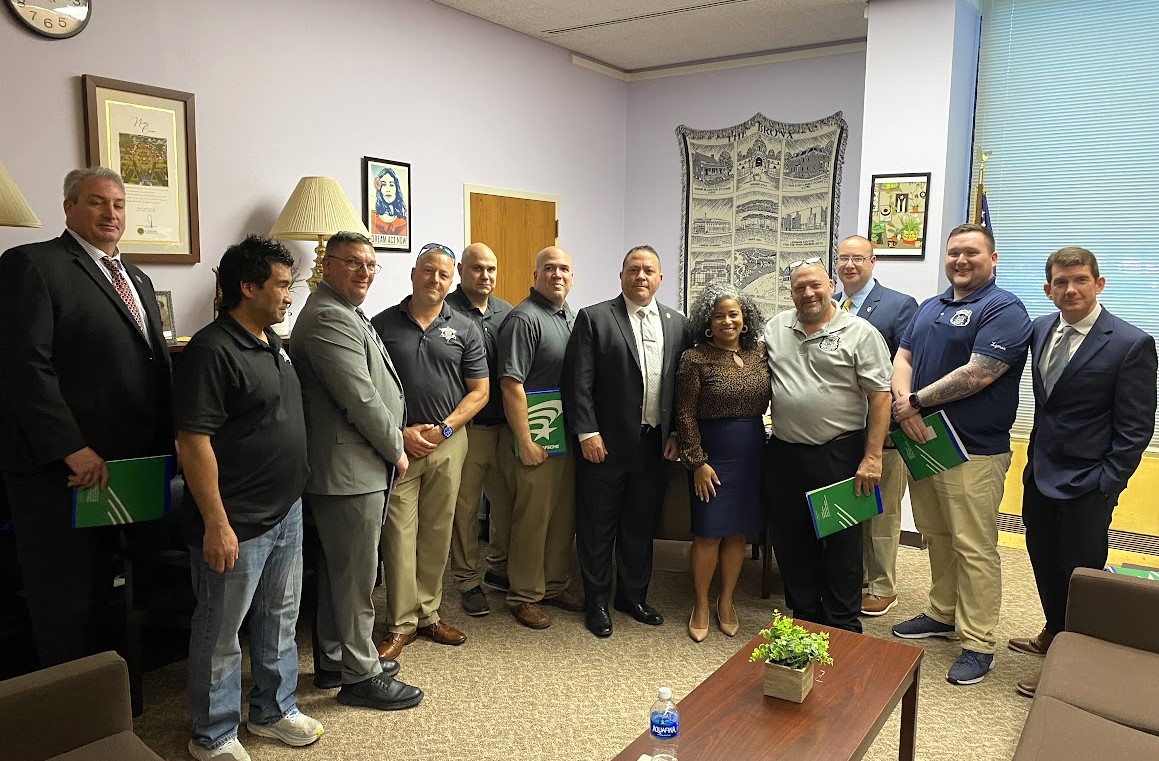
ALBANY, N.Y. – Seeking safer corrections facilities, members of the New York State Law Enforcement Officers Union (AFSCME Council 82) lobbied policy makers at the state Capitol on May 22.
These members say making corrections facilities safer requires a three-pronged approach — station trained medical professionals at every county jail to distribute and administer prescription medications, expand post-traumatic stress disorder (PTSD) coverage under the state workers’ compensation system, and reexamine New York’s segregated confinement law. The Humane Alternatives to Long-Term Solitary Confinement, or HALT Act, severely limited corrections officers’ ability to separate violent individuals from the rest of the prison population.
“We have issues that need to be addressed that we’ve been fighting for,” said Brandon Zepp, a 19-year corrections officer in Chemung County, who is one of many Council 82 members whose job requires him to administer prescription drugs to incarcerated individuals despite a lack of medical training.
“The job of a corrections officer is dangerous to begin with,” Zepp said. “We’re not trained in this. This is a job that should fall to medically qualified individuals. Our responsibility is safety and security.”
Council 82 members also highlighted the skyrocketing number of violent incidents since the HALT Act took effect in 2021. According to the New York State Department of Corrections and Community Supervision, there has been a 90% increase in inmate-on-inmate assaults and a 42% increase in assaults on corrections staffsince then.
“This law has stopped us from running our facilities safely,” said Corrections Officer Luis Roman, president of AFSCME Local 1249 in Oneida County. “Lobbying legislators to do the right thing is an important part of our job as union leaders.”
At the end of the lobby day, Council 82 members met with Assemblywoman Karines Reyes to discuss her bill, which ensures PTSD is identified and treated for more workers under New York’s workers’ compensation system.
Ron Walsh, president of Council 82 said, “We know that PTSD is real and it affects many of our members who work in public safety. We can’t lose any more public safety officers because of the personal impact their work has had on their lives. That’s why this bill is a top priority for us.”
Public safety professionals are increasingly turning to AFSCME to build power at work, and to advocate for safety on the job, better wages, good health care and a secure retirement. AFSCME members in corrections, law enforcement and emergency response defend our freedoms and those of the communities we serve.
Visit the AFSCME Public Safety website to get involved and learn more.
